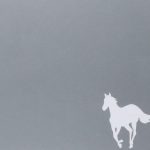“Chi Cheng” TITLE: Aesthetic Nuances BY: Matt Peterson ©2001 ——————— www.deftonesworld.com ——————— In Eastern thought, the duality of yin and yang expresses partial contradiction. Yin is dark, while yang is bright. Imbalance of the two is recipe for catastrophe, but the rotation of the two—yin becoming yang, yang becoming yin—represents synchronicity and unity in multiplicity. […]
“Dr. Drew” – 2001 // Chino Moreno Interviewed
Deftones frontman Chino Moreno by Blair Fischer www.deftonesworld.com —————————– As expected, the latest Deftones album, White Pony–the title of which is a veiled reference to one of frontman Chino Moreno’s guilty pleasures–has exploded on the sales chart. Less than a month after its release, the album has already approached gold status and is almost guaranteed […]
“Metroactive Music” – December 2001 // Todd Wilkinson Interviewed
The Sleeper Will Awake Todd Wilkinson and friends–who just happen to be in the Deftones–assemble a more-restful Team Sleep By Darren Keast BEFORE HIS current tour, Todd Wilkinson had never played his guitar in front of more than a few friends. In his first full-fledged interview a few months ago, he confessed he was pretty […]
“Sacramento Bee” – December 2001 // Chino Interviewed
Team Sleep strikes a ‘def-ferent’ tone By Chris Macias — Bee Pop Music Writer During the Deftones’ off-season, its West Sacramento rehearsal spot houses a slumbering pile of road cases and drum heads. But on a recent evening, a spacey combo of delay-driven guitars, vocal croonings and drum loops spanked off the studio’s walls. The […]
“Columbus Alive” – August 2001 // Chi Interviewed
The Deftones’ pony ride (© COLUMBUS ALIVE) When bassist Chi Cheng steps off the arena rock stage, he heads to a poetry reading by Brian O’Neill The Deftones’ White Pony was one of 2000’s most forbidding and minimalist discs. Yet, despite the downtuned gloom (and scant radio play), the band walked away with their first […]
“HeraldNet” – 2001 // Abe Interviewed
Deftones kept bickering to minimum on new CD By Alan Sculley Special to The Herald The Deftones’ 2000 CD, “White Pony” gave the Sacramento band a commercial breakthrough, producing a hit single in “Change (In the House of Flies)” and becoming the first million-selling release in the Deftones’ career. But perhaps the bigger story if […]
“deftonesworld.com” – July 2001 // Rodleen Interviewed
Rodleen interviewed by Nuno Rolinho (www.deftonesworld.com) July, 2001 ———————————— ———————————— NUNO: how did your appearance on the white pony happen? RODLEEN: At the time I lived up near Santa Barbara on Rincon Point. I came to Larabee Studios in West Hollywood that week to check out Rob Wasserman (an incredible bass player who plays with […]



